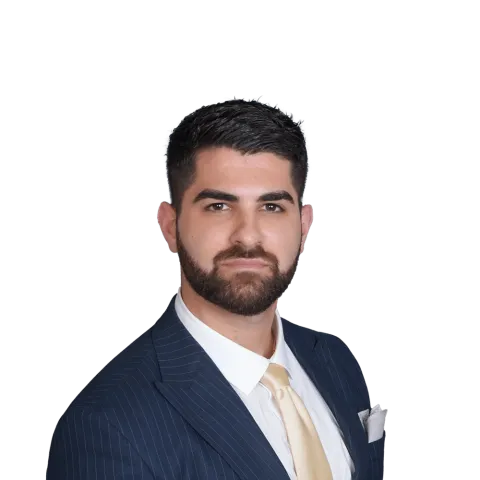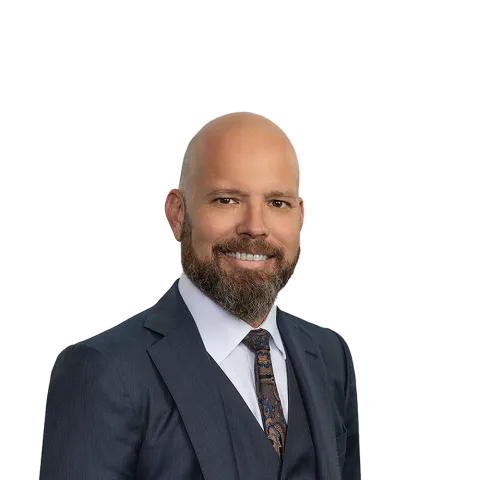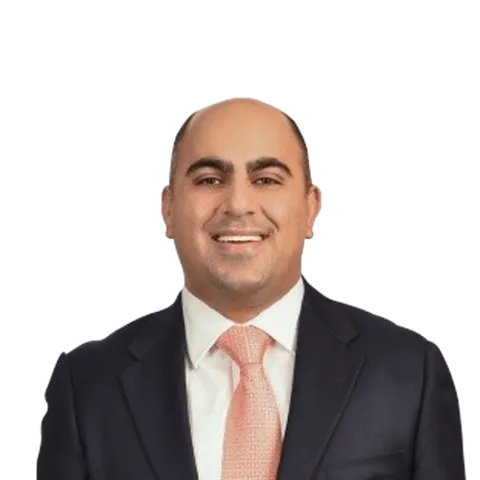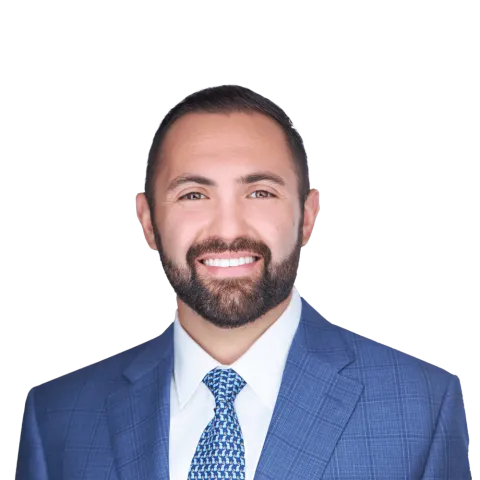Results may vary depending on your particular facts and legal circumstances. The attorney featured above is licensed in Florida. For a full list of attorneys in your state please visit our attorney page.
DELAND ELDER ABUSE ATTORNEYS
Elder abuse causes physical and emotional harm. We fight for victims and their families.
Results may vary depending on your particular facts and legal circumstances. The attorney featured above is licensed in Florida. For a full list of attorneys in your state please visit our attorney page.
Elder Abuse Attorneys in Deland
With the largest population of residents 65 years and older, Florida is one of the most popular places for retirees to live through their golden years. Warm weather throughout the year combined with seemingly endless outdoor recreational activities makes cities such as DeLand a popular destination for snowbirds from the north to call home. The prevalence of seniors living in the Sunshine State has generated strong demand for elder care services ranging from home care to permanent living arrangements made with one of the numerous facilities dedicated to meeting the housing needs of the more dependent members of the older population.
Around-the-clock elder care facilities address every basic living requirement, from providing daily meals to delivering the security elderly residents need to enjoy peace of mind. However, caring for a large base of retirees presents a major problem called elder abuse. Whether it is intentional acts of abuse or accidental incidents that cause harm, elder abuse represents a serious series of events that require the legal support of one of the elder abuse attorneys in DeLand licensed to practice law in Florida.
Elder abuse attorneys in DeLand, Florida offer several legal services to help clients fight back against the negligent actions committed by nursing homes and other types of long-term care facilities. A lawyer can help you or a loved one receive just compensation by gathering physical evidence, such as copies of security camera footage and photographs of unsafe living conditions. Hiring one of the elder abuse attorneys in DeLand also ensures you file the proper legal documents before deadlines, as well as interview witnesses that verify your version of events. Without the legal support provided by one of the experienced elder abuse attorneys in DeLand, facilities such as nursing homes typically gain the upper hand during any type of legal battle that seeks justice.
At Morgan and Morgan, handling elder abuse cases is one of our legal specialties. For more than 35 years, our personal injury lawyers have helped victims of elder abuse recover the compensation they deserved for the financial losses associated with elder abuse cases. We have recovered more than $30 billion in monetary damages from filing personal injury lawsuits, with a large percentage of the money recovered coming from the favorable rulings issued by judges overseeing elder abuse cases.
Learn more about how one of the experienced elder abuse attorneys in DeLand, Florida from Morgan and Morgan can help you fight back against the negligent acts committed by a nursing home by scheduling a free case evaluation with Morgan and Morgan.
100,000+ Five Star Reviews
The reasons why clients trust Morgan & Morgan.
Results may vary depending on your particular facts and legal circumstances. Based on select nationwide reviews.
What Are the Most Common Reasons for Elder Abuse?
At the heart of every personal injury case is discovering the cause of an incident or series of events that caused the victim harm. The attorney that you hire from Morgan and Morgan completes an exhaustive investigation into your case to determine the cause of the elder abuse committed by a facility or an individual responsible for the welfare of a senior citizen. During our more than three decades of providing highly-rated legal services, the personal injury lawyers at Morgan and Morgan have come across four of the most common causes of elder abuse in Florida, as well as across the United States.
Lack of Workers
The lack of workers in the healthcare industry remains one of the most common causes of elder abuse. Stretched thin at properly credentialed facilities, professionals responsible for taking care of the welfare of seniors assume more caretaking duties during already incredibly busy daily schedules. The result can lead to accidental caretaking errors such as forgetting to provide proper nutrition and/or failing to follow correct hygiene strategies. In addition, overworked professionals tasked with the care of dependent senior citizens often miss the obvious signs of elder abuse.
Poor Screening Methods
Florida has enacted a long list of criteria a facility or an individual must meet to provide elder care in the Sunshine State. This includes obtaining the proper licensing credentials, as well as following numerous protocols that ensure the well-being of the most vulnerable seniors. Facilities and individuals that provide elder care services should undergo extensive background checks to prevent the hiring of someone who has a criminal record, especially if the criminal record includes instances of elder abuse. Unfortunately, far too many elder care facilities either do not take the time and/or do not have sufficient financial resources to conduct comprehensive background checks.
Not Enough Training
The labor shortage in the healthcare industry also has negatively impacted the training elder care professionals receive before assuming the duties required for taking care of dependent seniors. Because of a lack of elder care professionals, many facilities cut corners to get new hires up to speed as quickly as possible. Lack of training frequently causes elder care issues like not knowing the proper procedure for responding to medical emergencies. Although hiring the right personality remains an important employee recruitment criterion, possessing knowledge on how to care for seniors is just as important to ensure the safety of nursing home residents.
Medication Errors
Eldercare facilities and the individuals that provide healthcare services for seniors oversee the dispensing of prescription medications that address a wide variety of health concerns. Whether it is prescribing the wrong drugs or issuing a prescription for the wrong dosage, medication errors remain one of the most common causes of elder abuse cases in Florida. The key to proving negligence when it comes to prescription medications involves gathering copies of prescription records and then comparing the information to the recommended type and quantity of drug approved for an elderly resident of a state-certified facility.
How Can I Tell if a Loved One Suffers From Elder Abuse?
Because of the reasons listed above, elder care professionals might miss the signs that indicate elder abuse. This means loved ones must assume the role of a detective when uncovering elder abuse, which involves knowing the signs to look for that might indicate abusive behavior.
Physical Signs
Physical signs, such as bruises and bedsores, indicate the most obvious signs of elder abuse. Other physical signs that should raise an alarm of elder abuse include cuts, lacerations, and pressure ulcers. A caretaker who loses patience with an elderly resident might commit an act that produces a fractured bone. Less obvious, yet just as serious signs, include constant fatigue and acute malnutrition. Since most elderly residents of nursing homes do not have the ability to defend themselves, physical abuse can be a recurring event that quickly deteriorates the health status of a senior citizen.
Emotional Signs
The emotional signs of abuse are much more difficult to detect than the physical signs of elder abuse. This is especially true for a nursing home patient who lives with some degree of dementia. Emotional abuse signs typically develop slowly over an extended period, such as a resident showing signs of depression and/or anxiety. Physical abuse can generate the symptoms of an emotional condition called Post-Traumatic Stress Disorder (PTSD), which is a common affliction endured by members of the military and victims of violent crimes. If you are not sure whether a loved one suffers from emotional abuse, contact one of the elder abuse attorneys in DeLand, Florida to discuss your case.
Financial Abuse
Not every sign of elder abuse concerns the mental and physical well-being of a nursing home resident. Seniors are particularly vulnerable to falling victim to financial scams, such as unknowingly participating in a Ponzi scheme or allowing a caretaker to control personal finances. If you discover unusual activity in a loved one’s financial records, that should raise a red flag that your loved one might be a victim of financial abuse. A recently opened bank account or suspicious credit card transactions represent two common signs of elder financial abuse conducted by a caretaker.
What Is the Deadline for Filing a Personal Injury Lawsuit?
Although you have many reasons to hire one of the experienced elder abuse attorneys in DeLand, Florida, one of the most compelling reasons concerns filing a civil lawsuit that seeks monetary damages before the expiration of the statute of limitations. Each state sets a deadline for filing a personal injury lawsuit. Most states have mandated a statute of limitations for personal injury cases between two and four years, with a few states allowing up to six years for plaintiffs to take legal action. Florida has established a statute of limitations for personal injury cases of two years for most types of cases. However, plaintiffs filing elder abuse lawsuits have just two years to take legal action. The clock starts ticking on the filing of an elder abuse lawsuit in Florida on the date of the first elder abuse. However, you might receive an extension of up to two more years if you did not immediately detect elder abuse.
Although four years appears to be plenty of time to file a civil lawsuit that seeks monetary damages, you should act with a sense of urgency by taking legal action as soon as possible after the discovery of elder abuse. You are responsible for taking care of every financial obligation connected to the elder abuse case until you receive compensation in the form of a settlement or the favorable judgment issued by the judge hearing your case. Filing a civil lawsuit quickly after discovering elder abuse helps you receive compensation sooner than if you wait to file close to the expiration of the statute of limitations. Your attorney also wants the expedient filing of a civil lawsuit to receive the most accurate version of events from witnesses such as family members and healthcare professionals.
If you fail to meet the statute of limitations for filing a personal injury lawsuit in Florida, expect the court clerk processing your case to remove it from the judicial docket.
Hire One of the Best Elder Abuse Attorneys in DeLand
The objective of any lawyer that you hire for legal representation during an elder abuse case is to get your loved one just compensation for enduring pain and suffering. You have three options for receiving compensation that includes economic, non-economic, and punitive damages. The key to receiving the compensation that your loved one deserves involves submitting overwhelmingly persuasive physical evidence, as well as the statements provided by witnesses.
Get the compensation your loved one deserves by scheduling a free case evaluation today with one of the elder abuse attorneys in DeLand, Florida from Morgan and Morgan.
Our Results
How It Works
Unsure what to do next? With 35 years of experience, our personal
injury lawyers will guide you every step of the way.

Contact Us 24/7 - It’s Free
Start your claim
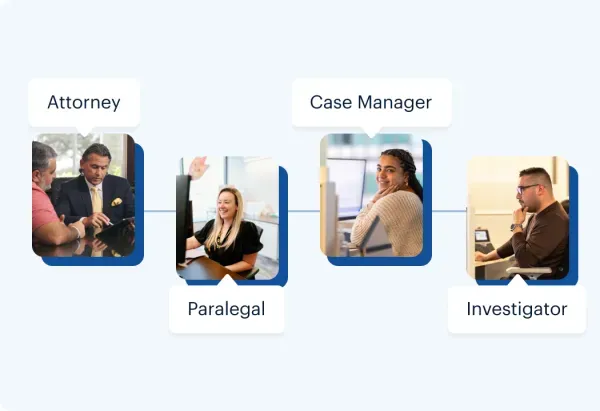
Meet your dedicated attorney
Meet the attorneys

We fight for more
Learn more about the case process
Results may vary depending on your particular facts and legal circumstances. The attorneys shown in these photos may not be licensed in your state. To find an attorney licensed in your area, please visit our attorney page.
Local Care
Backed by America’s Largest Injury Law Firm.
$30 Billion
Recovered for clients
nationwide700,000+
Clients and families
served1,000+
Attorneys across
the country1
Click may change your life
The attorney featured above is licensed in Florida. For a full list of attorneys in your state please visit our attorney page.
Results may vary depending on your particular facts and legal circumstances.
Learn More
Injured and not sure what to do next?
We'll guide you through everything you need to know.



